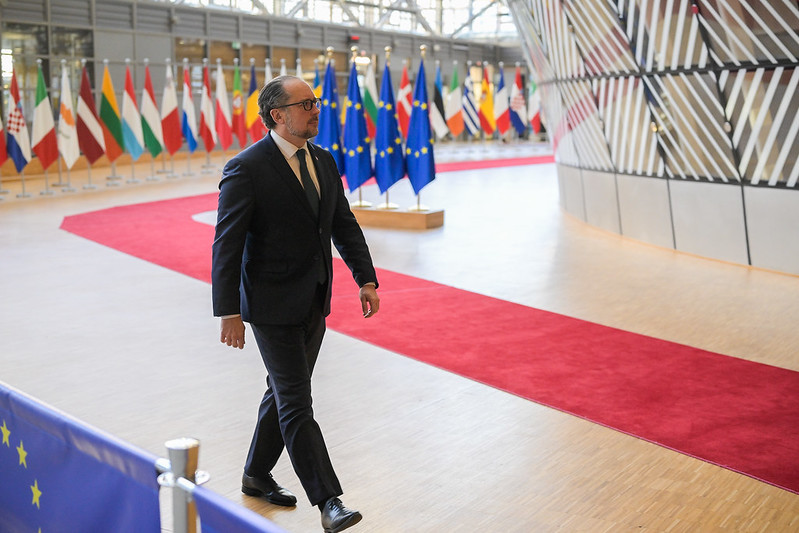Sponsored Content
Schallenberg Attended the Foreign Council Affairs Meeting in Brussels
Austrian Foreign Minister Alexander Schallenberg attended the Foreign Council Affair meeting in Brussels, where he talked about several topics regarding European Security and other subjects.
 Austrian Foreign Minister Alexander Schallenberg Attended The Foreig Council Affairs Meeting in Brussels. / Picture: © BMEIA Bundesministerium für Europa, Integration und Äußeres / Gruber / Flickr Attribution 2.0 Generic (CC BY 2.0)
Austrian Foreign Minister Alexander Schallenberg Attended The Foreig Council Affairs Meeting in Brussels. / Picture: © BMEIA Bundesministerium für Europa, Integration und Äußeres / Gruber / Flickr Attribution 2.0 Generic (CC BY 2.0)
On January 23, Foreign Minister Alexander Schallenberg attended the Foreign Affairs Council in Brussels together with his EU counterparts. The exchange focused on the Russian war of aggression against Ukraine and current developments in Iran. The EU foreign ministers also exchanged views on the situation in the Sahel zone and West Africa and the conflict between Armenia and Azerbaijan.…
or Log In
Fast News Search





